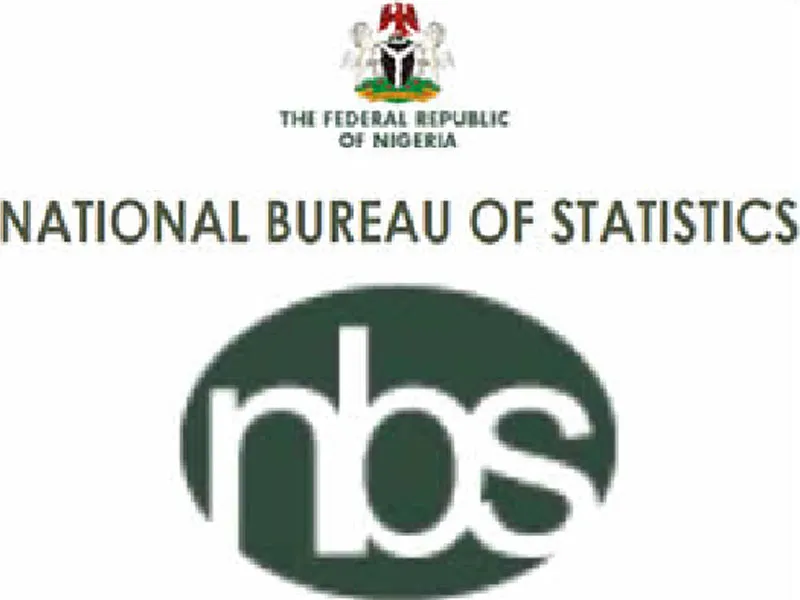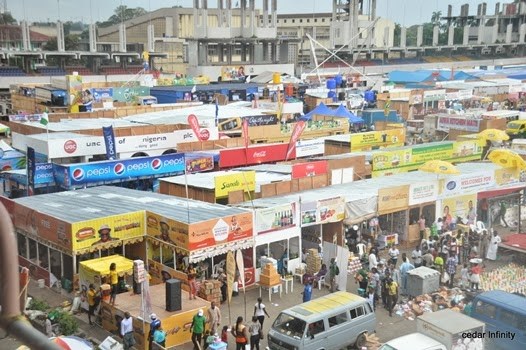Economy
Corruption Survey to Assess Effectiveness of FG’s Fight Against Corruption- NBS

The National Bureau of Statistics (NBS) says its corruption survey is aimed at assessing the Federal Government’s fight against corruption.
The Statistician-General of the Federation, Prince Semiu Adeniran, said this at the Train the Trainers programme for the Third National Survey on Quality and Integrity of Public Services in Nigeria in Abuja on Monday.
Reports says that the survey, also called the Corruption Survey, is the third of its kind with the first two conducted in 2017 and 2019.
Adeniran, represented by the Bureau’s Director of ICT, Mr Biyi Fafunmi, said the training was a significant milestone in efforts to collectively combat the scourge of corruption in Nigeria.
He said corruption had remained a formidable challenge as such the insights gathered would guide the country towards a more transparent and accountable future.
He said the outcome of the survey was not to castigate or point fingers at any individual or institution, but to make the necessary commitment to improving the quality of public service available to Nigerians.
“It is also to enhance the trust in the relationship between the citizens and public offices. This is an important hallmark of development in any society.
“This third round is being conducted in collaboration with the United Nations Office on Drugs and Crime (UNODC) and the MacArthur Foundation.
“The survey is not only important as a policy decision tool but also strategic and timely.
“The results will help assess the effectiveness of the efforts deployed by the government to tackle corruption, identify remaining gaps, and determine priority areas for future initiatives.
“It will also help the government craft future anti-corruption policies that are better designed, better targeted and thus more effective to tackle corruption in our society,” he said.
Adeniran said the survey focused primarily on understanding the experiences of corruption by Nigerians, rather than perceived corruption whenever they encounter public officials.
According to him, two new vital modules on gender and disability have been introduced to the instrument in the third round of the survey.
“As the third aspect of the survey, following the 2017 and 2019 rounds, we are presented with an opportunity to conduct a trend analysis of corruption experienced by households in the country.
“Thus, this round will seek to gain a deeper understanding of the differential impact of corruption on marginalised or typically excluded groups such as women, youths, and persons with disabilities,” he said.
Mr Musa Mohammed, Director of Demography and Household Statistics, NBS, said a test run survey was carried out in Uyo and Nasarawa as a build-up to the main survey.
Mohammed, who is also the Project Director, said the trainers would review the questionnaires to be used for the survey, adding that 30 per cent of the numerators for the exercise were from the NBS.
“We will use this opportunity to build the capacity of the state Bureau of Statistics,” he said.
He said the survey of 2017 and 2019 showed a decline in the prevalence of bribery from 32.3 per cent to 30.2 per cent adding that it’s however at variance with the report of Transparency International.
The National Research Consultant, Prof. Adebisi Adeniran, said that the two previous surveys impacted on policy formulation in Nigeria and expects that the third round would look at trends and patterns of corruption in the country.
Princess Chifiero, Project Officer, Anti-Corruption, UNODC, said the focus was on an experienced-based corruption survey shared by citizens themselves rather than on perception.
She said the survey questionnaires were usually translated into the three Nigerian official languages and Pidgin English with 33,000 interviewers across the 36 states and the FCT.
Chifiero said that bribery refusal, gender dimension, items to measure disability and items to measure the location of bribery were new additions to the survey.
NAN reports that the main survey fieldwork would start in October through November 2023 with the ongoing training of the trainers which would be stepped down to the state level. (NAN)
Economy
Customs Zone D Seizes Contraband Worth N110m

The Nigeria Customs Service (NCS), Federal Operation Unit (FOU), Zone D, has seized smuggled goods worth over N110 million between April 20 till date.
The Comptroller of Customs, Abubakar Umar, said this at a news conference on Tuesday in Bauchi.
He listed the seized items to include 11,200 litres of petrol; 192 bales of second hand clothing, 140 cartons of pasta, 125 pairs of jungle boots, 47 bags of foreign parboiled rice and 9.
40 kilogramme of pangolin scales.Umar said the items were seized through increased patrols, intelligence-led operations, and strengthened inter-agency collaboration.
The comptroller said the pangolin scales would be handed over to the National Environmental Standards and Regulations Enforcement Agency (NESREA) for appropriate action, while the seized petrol would be auctioned, and the proceeds remitted to the federation account.
He attributed the decrease in smuggling activities of wildlife, narcotics, and fuel to the dedication and professionalism displayed by the personnel in line with Sections 226 and 245 of the NCS Act 2023.
The comptroller enjoined traders to remain law abiding, adding the service would scale up sensitisation activities to combat smuggling.
“We remain resolute in securing the borders and contributing to Nigeria’s economic development,” he said.
The FOU Zone D comprises Adamawa; Taraba, Bauchi, Gombe, Borno, Yobe, Plateau, Benue and Nasarawa. (NAN)
Economy
Trade Tensions: Global Economy Stands at Fragile Turning Point -UN

The UN Department of Economic and Social Affairs (UN DESA) has said that the global economy stands at a fragile turning point amid escalating trade tensions and growing policy uncertainties.UN DESA, in a report published on Thursday, stated that tariff-driven price pressures were adding to inflation risks, leaving trade-dependent economies particularly vulnerable.
It stated that higher tariffs and shifting trade policies were threatening to disrupt global supply chains, raise production costs, and delay key investment decisions – all of this weakening the prospects for global growth. The economic slowdown is widespread, affecting both developed and developing economies around the world, according to the report.For instance, in the United States, growth is projected to slow “significantly”, as higher tariffs and policy uncertainty are expected to weigh on private investment and consumer spending.Several major developing economies, including Brazil and Mexico, are also experiencing downward revisions in their growth forecasts.China’s economy is expected to grow by 4.6 per cent this year, down from 5.0 per cent in 2024. This slowdown reflects a weakening in consumer confidence, disruptions in export-driven manufacturing, and ongoing challenges in the Chinese property sector.By early 2025, inflation had exceeded pre-pandemic averages in two-thirds of countries worldwide, with more than 20 developing economies experiencing double-digit inflation rates.This comes despite global headline inflation easing between 2023 and 2024.Food inflation remained especially high in Africa, and in South and Western Asia, averaging above six per cent. This continues to hit low-income households hardest.Rising trade barriers and climate-related shocks are further driving up inflation, highlighting the urgent need for coordinated policies to stabilise prices and protect the most vulnerable populations.“The tariff shock risks hitting vulnerable developing countries hard,” Li Junhua, UN Under-Secretary-General for Economic and Social Affairs, said in a statement.As central banks try to balance the need to control inflation with efforts to support weakening economies, many governments – particularly in developing countries – have limited fiscal space. This makes it more difficult for them to respond effectively to the economic slowdown.For many developing countries, this challenging economic outlook threatens efforts to create jobs, reduce poverty, and tackle inequality, the report underlines. (NAN)Economy
FG To Finalize N1.5trn Road Concession Project- Edun

The Minister of Finance and Coordinating Minister of the Economy, Mr Wale Edun, says the Federal Government will soon finalise N1.5 trillion road concession project.
Edun made the statement during a meeting with some private sector investors in Abuja on Wednesday.
He said that the government was on the verge of finalising the landmark N1.
5 trillion road concession project, launched in 2021 under the Highway Development and Management Initiative (HDMI).The minister said that the initiative aimed to involve private sector partners in the reconstruction and management of nine major highways across the country, spanning approximately 900 kilometers.
He said that the partners had almost completed all arrangements for the highways, which they would finance, rebuild, and maintain under 25-years concession agreements.
Edun said that the concessionaires were expected to recoup their investments through tolling fees.
“We met the concessionaires who have virtually concluded all the agreement arrangements for nine roads, nine major highways, which they are contracting to refinance the rebuilding of and to recover their funds from tolling fees under 25-year or so agreements.
“And we met them to iron out the remaining administrative obstacles for the kicking off construction of these roads,” he said.
Edun said that the substantial private sector investment would bridge budgetary gaps.
He added that it would also allow investors to undertake revenue-generating projects, leveraging their expertise and resources for long-term implementation and maintenance.
“Thereafter, it will be a question of signing the addendums and moving to the site.
“As you know, already the 125-kilometer Benin–Asaba Highway concession agreement has been signed. The addendum has been signed.
“All arrangements have been finalised, in fact, the ministry of works have handed over the road to the concessionaires.
“They have already started the preliminary arrangements for reconstruction of that road in place of a 10 lane highway.
“It is an investment, it’s a project and an initiative that will reduce the travel time between Benin and Asaba right up to the Niger Bridge,” the minister said.
Edun said that the Benin–Asaba Highway project, which has already commenced, is expected to reduce travel time between Benin and Asaba from four hours to one hour, significantly enhancing productivity and efficiency in the region.
He described the HDMI, launched in 2021, as a strategic programme by the federal government aimed at attracting private sector investment to improve Nigeria’s federal road network.
Edun said that the initiative seeks to address the challenges of inadequate funding and maintenance by leveraging Public-Private Partnerships (PPP) to develop and manage road infrastructure.
Under the HDMI, 12 highways were initially selected for concession, covering a total of 1,963 kilometers.
These roads include Benin–Asaba, Abuja–Lokoja, Kano–Katsina, Onitsha–Owerri–Aba, Shagamu–Benin, Abuja–Keffi–Akwanga, Kano–Shuari.
Others are Potiskum–Damaturu, Lokoja–Benin, Enugu–Port Harcourt, Ilorin–Jebba, Lagos–Ota–Abeokuta, and Lagos–Badagry–Seme roads.
The minister said that the initiative was projected to generate over 50,000 direct and 200,000 indirect jobs, contributing significantly to the country’s economic growth and development.
The Minister of Works, Engineer David Umahi who joined the meeting virtually reassured the private sector partners on the HDMI of the federal government commitment.
He said that everything possible would be done to resolve the contending issues, adding he will soon be back to address all pending issues.
One of the concessionaires, Mr Kola Karim, representing Shoreline, emphasised the need for right and enforceable documents stipulating the takeoff and handover dates, which would attract investors to invest their funds.
Other private sector partners also requested for the addendum to the original agreement to be signed that would enable toll sections of the completed highways while work was in progress on other sections.
They noted that each concessionaire has unique challenges that should be dealt with accordingly.
Also in the meeting were Minister of Budget and Economic Planning, Abubakar Bagudu, and the Director General Infrastructure Concession and Regulatory Commission (ICRC), Dr Jobson Ewalefoh

















